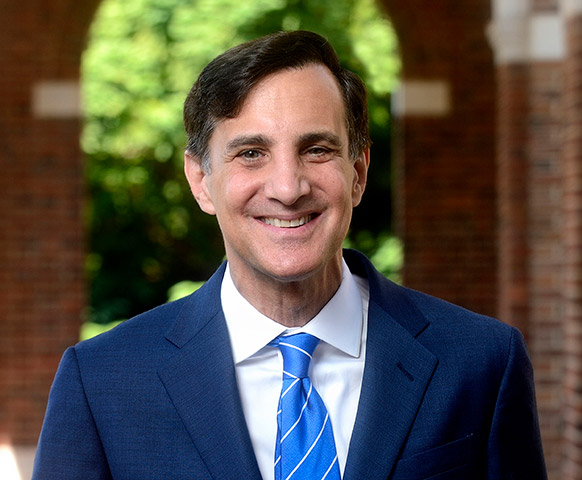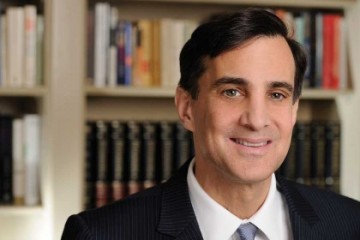
Image caption:
Ronald J. Daniels
President
Last month, we launched the Class of 2018 into their futures.
Many of those futures will include a career in scientific research. Yet these young scientists' breakthroughs may be imperiled unless we address the challenges facing our biomedical research enterprise—declines in research funding in real dollars over the past 15 years, the inexorable rise of the average age of researchers when they receive their first major federal grant, and the lack of pathways to jobs outside the academy, among others.
These challenges have implications for our nation and our Johns Hopkins community and have led to widespread concern about hyper-competition among scientists and incrementalism in the science produced, when instead we should be focused on the collaboration and innovation responsible for decades of discovery.
In 2016, Congress called for a National Academies of Sciences, Engineering, and Medicine study to examine the impact of these issues on the next generation of researchers, which I was privileged to chair, and we released our report this spring. In it, we acknowledge the past efforts to take up these issues and seek to offer both policy and structural reforms to reverse these disturbing trends. These recommendations include more support for postdoctoral fellows and early career investigators, the incorporation of training and diversity plans on research grants, and the creation of a Biomedical Research Enterprise Council to bring together stakeholders from industry, government, and the academy to oversee ongoing reforms of the biomedical research enterprise.
The sustenance of this enterprise involves all stakeholders, including universities. At Johns Hopkins, we are taking action on several fronts. In December, our university and nine other institutions announced the Coalition for Next Generation Life Science, a collective united in the belief that transparency is essential for change. Coalition members will be publishing detailed data on training and career outcomes for life sciences PhDs and postdoctoral fellows in order to empower the next generation of researchers to make clear-eyed decisions about their futures.
Further, our own faculty-led Committee on the Biomedical Scientific Workforce offered a draft report this winter that includes more than 20 recommendations to strengthen support for our biomedical faculty, trainees, and staff and to ensure that Johns Hopkins remains a place of innovation for decades to come. Among the recommendations are a focus on recruitment and advancement of diverse faculty, safeguarding time for professional development for trainees, and developing clearly defined opportunities for those who wish to pursue nonacademic careers. The work of implementing these recommendations has already begun.
Through all these efforts, we are striving to create a future in which the creativity and intellectual independence of our recent graduates, students, and colleagues are sustained and encouraged. We owe it to them and all who will benefit from their discoveries.

Ronald J. Daniels
President








